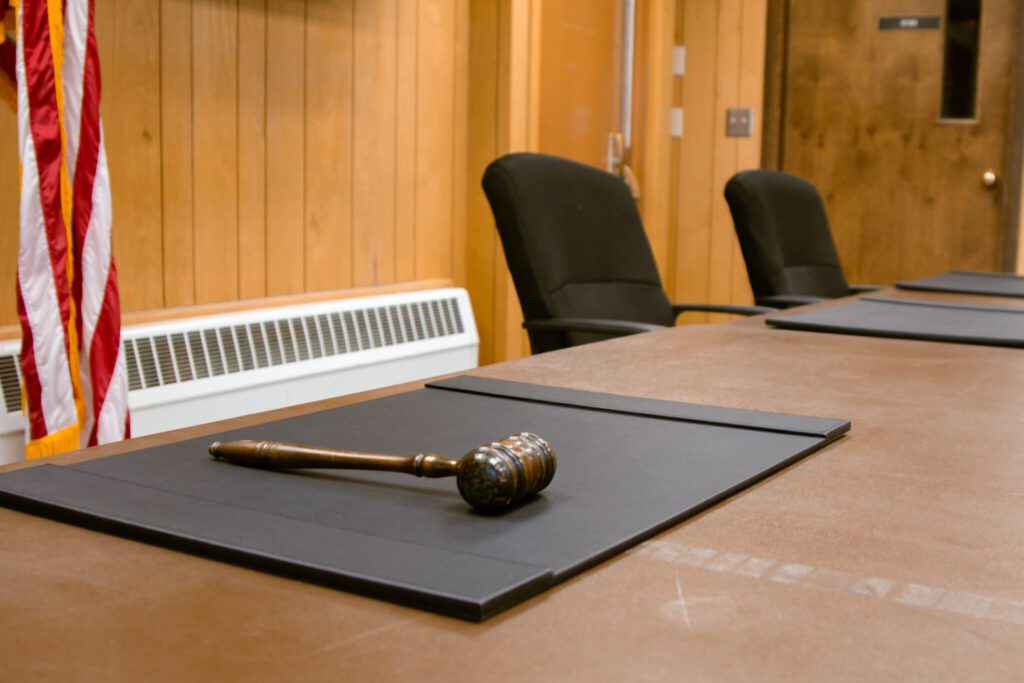It was a hand-wringing meeting for the Nome City Council Friday as council members and city officials pored over the details—and worked to minimize the risks—of the $2.2 million line of credit the city has extended to Nome Joint Utility.
In the end, the council approved the new line of credit, but not without serious questions about exactly how much is owed, how it would be repaid, and who would oversee the process.
It all started two weeks ago after emergency meetings of the utility board and the City Council initially approved the $2.2 million of credit after the utility failed to secure new loans with its bank, Wells Fargo. But it wasn’t until Friday’s meeting that the details of the city’s credit line to the utility became clear.
“We would not bring this today, to you, if we did not feel confident that we either A, we have a plan in place, or B, that we feel like this is too much risk for the city to bear,” City Manager Josie Bahnke told the council at the Friday afternoon meeting.
Bahnke said the mayor, the utility board, and city administers had begun reviewing the utility’s books, and were confident they had verified existing debts and money due back; confident enough to offer two documents to the council at the meeting Friday, a pledge agreement outlining the conditions of the city’s loan, and a second disbursement agreement outlining how the city would dole out the multi-million dollar credit line.

But surprises popped up as the council looked closer at the utility’s financial needs. Initially the $2.2 million requested only to cover projects paid for by the utility and awaiting reimbursement through grants, and the council was alarmed to learn on Friday that now—included in the original $2.2 million credit line—there is a payment for the utility’s fuel bill. City Financial Director Julie Liew said that payment is between $500,000 and $600,000, and carries a penalty of up to $25,000 for a late payment.
NJUS Manager John Handeland says that fuel bill was initially covered under the former Wells Fargo agreement, but when that fell through, the utility wasn’t able to make its payment on time. Council member Matt Culley echoed the frustration and anger of many at the meeting as he addressed Handeland.
“We get this on short notice, and you want $2.2 [million], you told us nothing about … this was all about grant reimbursements for us,” Culley said. “Now … we have a $500,000 fuel bill that’s thrown in there, something we don’t know … This is unraveling before us. This has many layers as it gets going. It went from just a line of credit for grants and now that’s not the case.”
Culley said he feared more unknown bills could come due. “What else is there out there that we haven’t seen?”
Handeland and city officials struggled to explain the utility’s bookkeeping, a labyrinth of loans and grants balanced against reimbursements and money made from utility customers. Council member Jerald Brown cut through the confusion and laid it out for everyone at the meeting.
“What’s really happened is: [the utility’s] line of credit got cut off, you’ve been paying it down basically using operations funds to pay for grant expenditures, which really put a damper on the utility’s ability to pay for operational type expenses … [and] it’s exacerbated by the mixing of different types of expenditures within the same accounts.”
That accounting “has to get straightened out,” Brown added, and efforts to do so were exactly what the council demanded: mandating its $2.2 million only pay for projects than can be reimbursed with grants; ordering that all reimbursements go directly to the city; and pushing finance director Liew to have full and unfettered access to NJUS’ books.
Brown also required that an third party rate consultant, already set to meet with the utility, report directly to the council itself.
“I want the rate consultant to report to city personnel, not to NJU personnel,” he said. “I don’t want there to be any appearance of influence exerted on the rate consultant. I’m not saying there would be any actual influence exerted, I just don’t want there to be any appearance there.”
Utility manager Handeland was contrite as he addressed the council, admitting that decreased sales, a depleted savings account, and growing costs have hurt the utility’s finances, while unfilled positions—like a chief financial officer—have left an inordinate amount of work for fewer people to do.
“I’ve done as much as I humanly could do, every day of the week, and there are things I was not able to do. And you know, I take responsibility for that,” he said. “I recognize it, the board recognizes … I’ve just been stretched too thin in the process.”
He added that, “to move forward, we have to have a different structure” at the utility.
After more than an hour it came down to a vote, and the $2.2 million credit line was approved with “yes” votes from council members Stan Andersen, Louie Green Sr., Randy Pomeranz, and Jerald Brown. Council member Matt Culley was the lone “no” vote. Council member Tom Sparks was not present.
It was a tense meeting during which the city grappled with an agreement with potentially huge repercussions, but as the assembled crowd gathered to leave, handshakes and even hugs were exchanged; a sign that all involved are concerned about the impact a multi-million dollar credit line will have the city—and each other.







